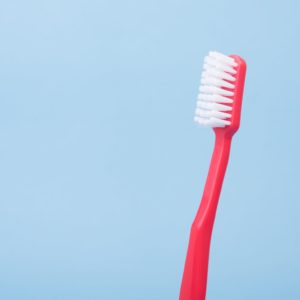Dental Hygiene
 Good dental hygiene is very important for people who have facial palsy especially if recovery is slow. This is because some people with facial palsy have an increased risk of developing tooth decay and gum disease.
Good dental hygiene is very important for people who have facial palsy especially if recovery is slow. This is because some people with facial palsy have an increased risk of developing tooth decay and gum disease.
If you have facial palsy it may become more difficult to:
- Brush your teeth especially on the affected side.
- Rinse your mouth and spit out.
- Clear food debris from the affected cheek. Often food collects in the affected cheek without the person being aware. This occurs because when the cheek muscles are weak (buccinator muscles) food can not be held between the teeth for chewing. Consequently, food falls into the cheek pouch where it can accumulate.
- Sleep with your mouth closed resulting in the mouth drying out overnight
- Produce sufficient saliva. When there is insufficient saliva speaking, chewing and swallowing can all become more difficult.
One or more of these symptoms will mean that you are at increased risk of developing tooth decay and gum disease.
What can help
- Rinse your mouth or brush your teeth after eating. This will ensure that you clear any food residue left inside your affected cheek and in between your teeth. Food debris which remains in the mouth harbours bacteria which can attack the teeth and gums.
- Insufficient saliva alone will increase the risk of tooth decay, as saliva protects the teeth and neutralizes acids which control bacterial growth. Saliva also helps wash away food particles. There are various products which help stimulate saliva production. There are also saliva substitutes available in the form of artificial saliva sprays and gels. These can be purchased online or over the counter. Alternatively, your GP or dentist may prescribe them for you. Companies which produce popular saliva substitutes are Bioxtra or Biotene.
- Alcohol and smoking can also inhibit the production of saliva so try and avoid or reduce these activities.
- There are various medication which can also reduce saliva production so check with your pharmacist if you are prescribed any medication which causes dry mouth.
- Make sure you are well hydrated and carry water with you to sip throughout the day.
- Have regular dental check-ups. If you experience a slow recovery, then visit your dentist as soon as possible so that you can be given a professional opinion and be offered the necessary advice.
- Regular appointments with a dental hygienist will ensure you are on track with your dental hygiene routine.
Read more
Photo by Christian Sterk on Unsplash
